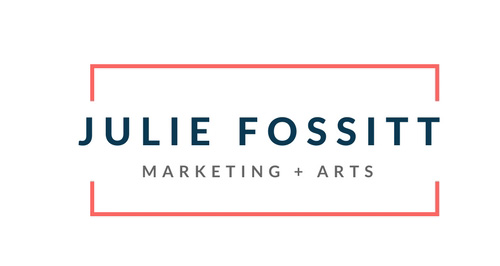Recently I have done a number of speaking engagements and facilitated some workshops around personal branding. I am much more comfortable talking about brands of products, organizations or other individuals, than talking about myself. But, it seems that both emerging artists and students are really interested in learning how to differentiate themselves in a highly competitive digital world.
My favourite exercise to do in these workshops is a Google search of oneself in pairs. If I don’t know the participants, I will sometimes get the list in advance and do some searches myself to see if I can find anything surprising, interesting, or possibly nefarious. This is a tough exercise, as we often feel upset or uncomfortable as to way we are portrayed online and the significant memory the internet has about our past. You can find out a bit more about my take on personal branding here.
I don’t spend nearly enough time crafting my personal brand. I post on all channels fairly sporadically and mix up my Instagram stories with work, family, thrifting, cooking and anything else that I fancy during the day. My curated digital life is not an accurate reflection of who I am or how I feel. I don’t share the meltdowns of my kids or my disappointment in myself for failing at all the things. I don’t share many photos of myself as I can’t stand to see those crow’s feet getting bigger as I slide into middle age. I share with my workshop participants that they need to get in front of the camera to show off who they are, but I don’t have the guts to do that myself, partly because of fear of the way the words will come out.
I grew up in a rural area in Ontario and never thought anything of how we spoke. Even in university in Montreal, my country ‘accent’ was never brought up, as we spoke a lot of broken French and my Francophone classmates spoke English the best they could.
My second summer of university I went to teach in a summer camp in Connecticut. It was a very affluent camp where kids from the New York City fled the July heat for the cool breeze in the Berkshires. The counsellors thought my accent was funny, but they mostly egged me on to say ‘out and about’ so I thought it was a Canadian thing.
When I moved into more professional roles I had numerous senior staff ask me where I was from and comment that “I say ‘ya’ a lot”. I laughed it off, but felt ashamed. Not ashamed as to where I was from, but for not being able to fool people that I was more cosmopolitan. I realize that I use my ‘small town girl’ story as a narrative that tries to demonstrate how far I have come. I have told many people that I was the first person in my family to go to university and that, despite the town in which I grew up that I turned out pretty good.
How shameful. The town where I grew up is filled with community-minded, hard-working people who love where they live. They didn’t want to escape or ‘turn out better’, but are living their best lives in a huge variety of professions, hobbies, interests and ways. Instead of embracing my upbringing, I have chosen to use my personal brand to demonstrate my success having ‘made it out’ despite my ‘hick accent’.
If a brand is …”the personality that identifies a product, service, or company…” (thanks 1dea), our personal brand can be a reflection of our true selves without shame. One part of my self is the challenges that I have had with a child with ADHD. For the first time, I wrote about this topic in an article a few years ago, and I still have connections contact me to talk about their struggles with this disorder. It was terrifying to write that post, but I was feeling so alone and needed to see if anyone else out there had any of the same challenges. There were others – many others.
So my lovely students, who are getting ready to graduate and look for employment – be your mixed-up, flawed and quirky authentic selves. Share your love of Twitch, your Saturday D&D games, your throwback thursday photos, your mental health struggles, or anything else that you have the courage to share. Employers want to hire real people, and perhaps they will want to hire someone from a small town who speaks with a bit of a drawl.
